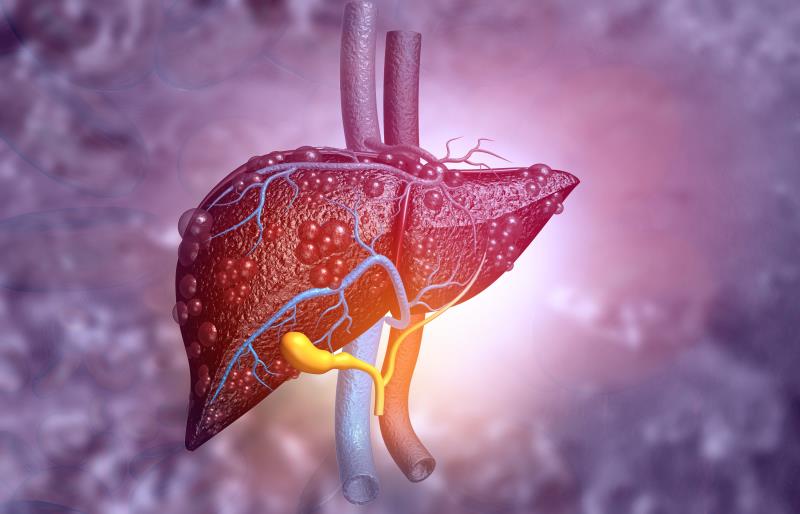
Liver cirrhosis patients with afebrile bacteraemia remain at risk of worse clinical outcomes and survival, a recent study has shown.
The researchers conducted a single-centre, retrospective cohort study including 104 bacteraemia patients with liver cirrhosis. Of these, 49 (mean age, 56.6±12.1 years; 79.6 percent male) were febrile and 55 (mean age, 55.3±12.3 years; 74.5 percent male) were afebrile. The primary study outcome was 30-day mortality rate. Secondary outcomes included rate of ICU transfer, endotracheal intubation, shock and renal replacement therapy.
Afebrile patients were significantly more likely to be given inappropriate antibiotic therapy than their febrile counterparts (43.6 percent vs 20.4 percent; p=0.01). The following drugs were ineffective in 31 patients overall: third-generation cephalosporins (21 of 31), amoxicillin/clavulanic acid (6 of 31) and fluoroquinolones (2 of 31).
Similarly, the 30-day mortality rate was significantly worse in afebrile participants (40 percent vs 18.4 percent; p=0.02). The rate in the overall cohort was 29.8 percent, with 31 patients dying during follow-up.
Kaplan-Meier survival curves further confirmed that the 30-day cumulative survival probability was significantly lower in afebrile bacteraemia patients with cirrhosis (60 percent vs 81.6 percent; p=0.02).
Afebrile patients also experienced a significantly higher rate of ICU transfers (38.2 percent vs 18.4 percent; p=0.03) and endotracheal intubation (27.3 percent vs 10.2 percent; p=0.03). Septic shock and renal replacement therapy had comparable rates between groups.